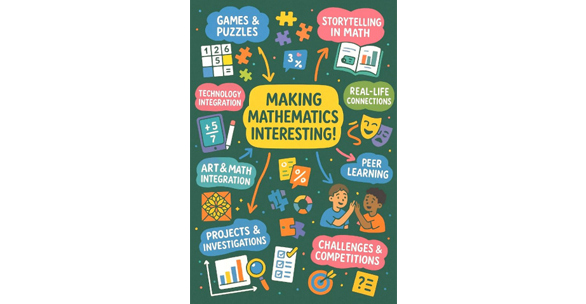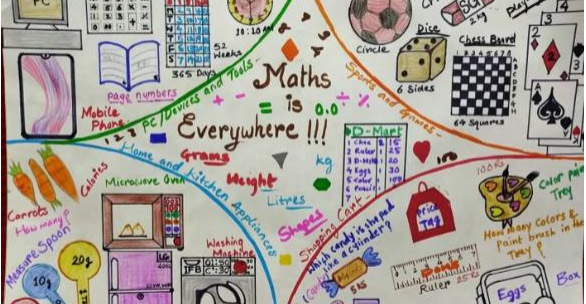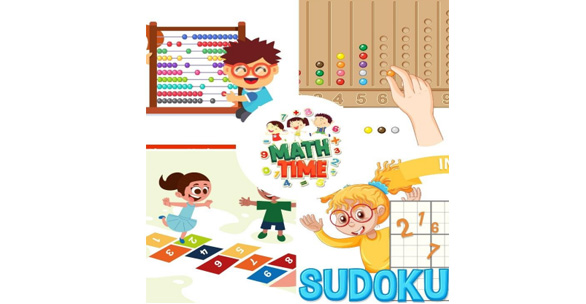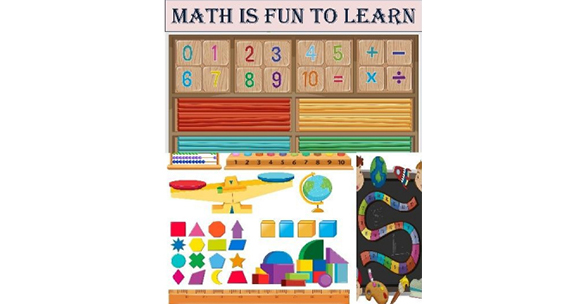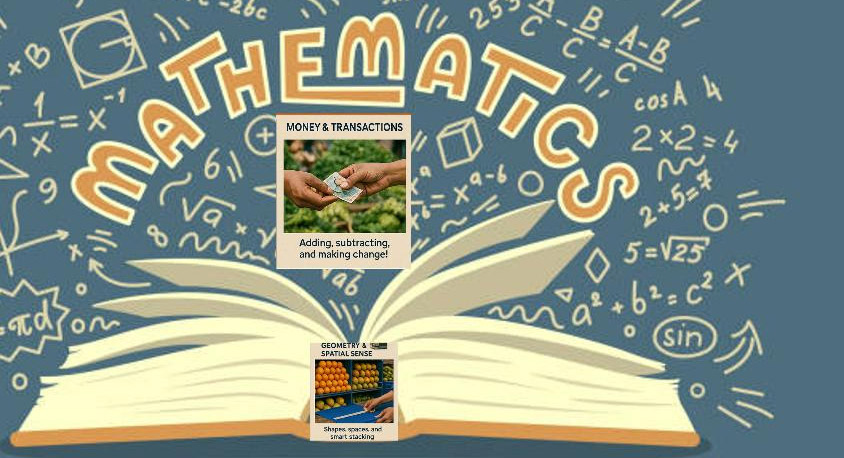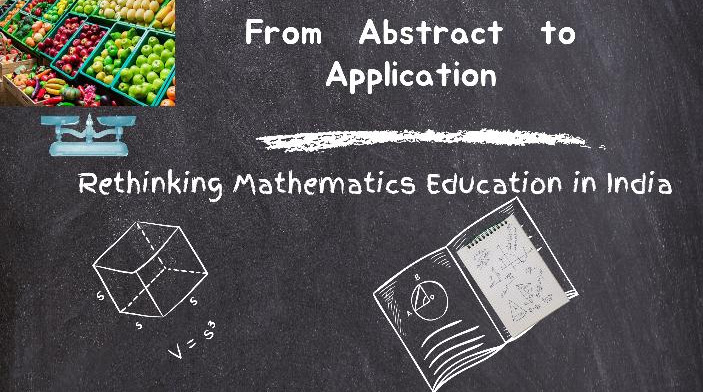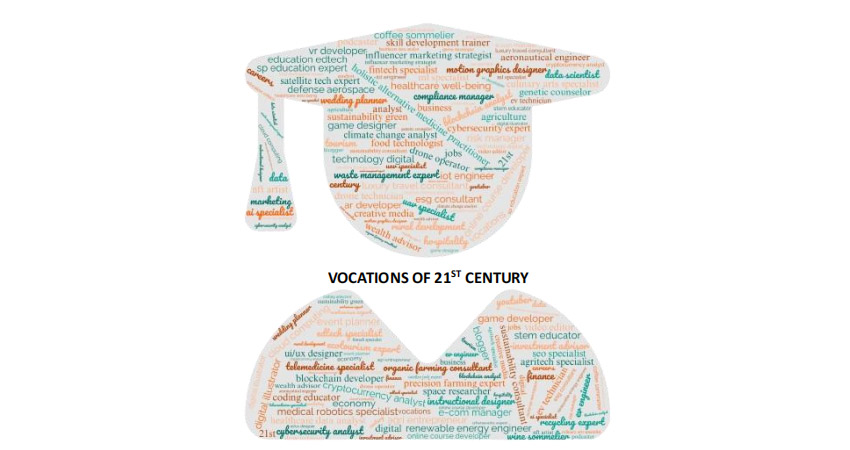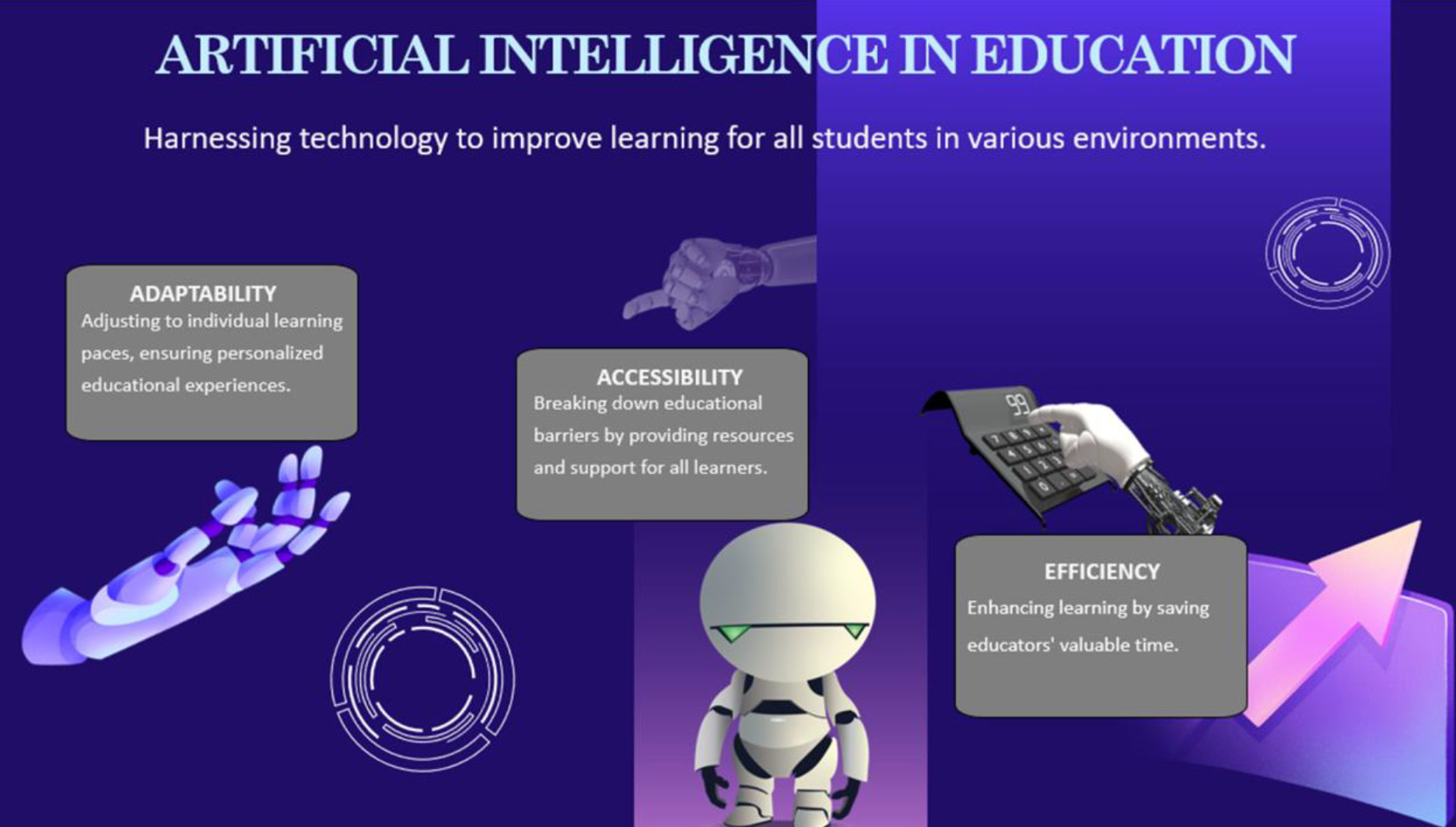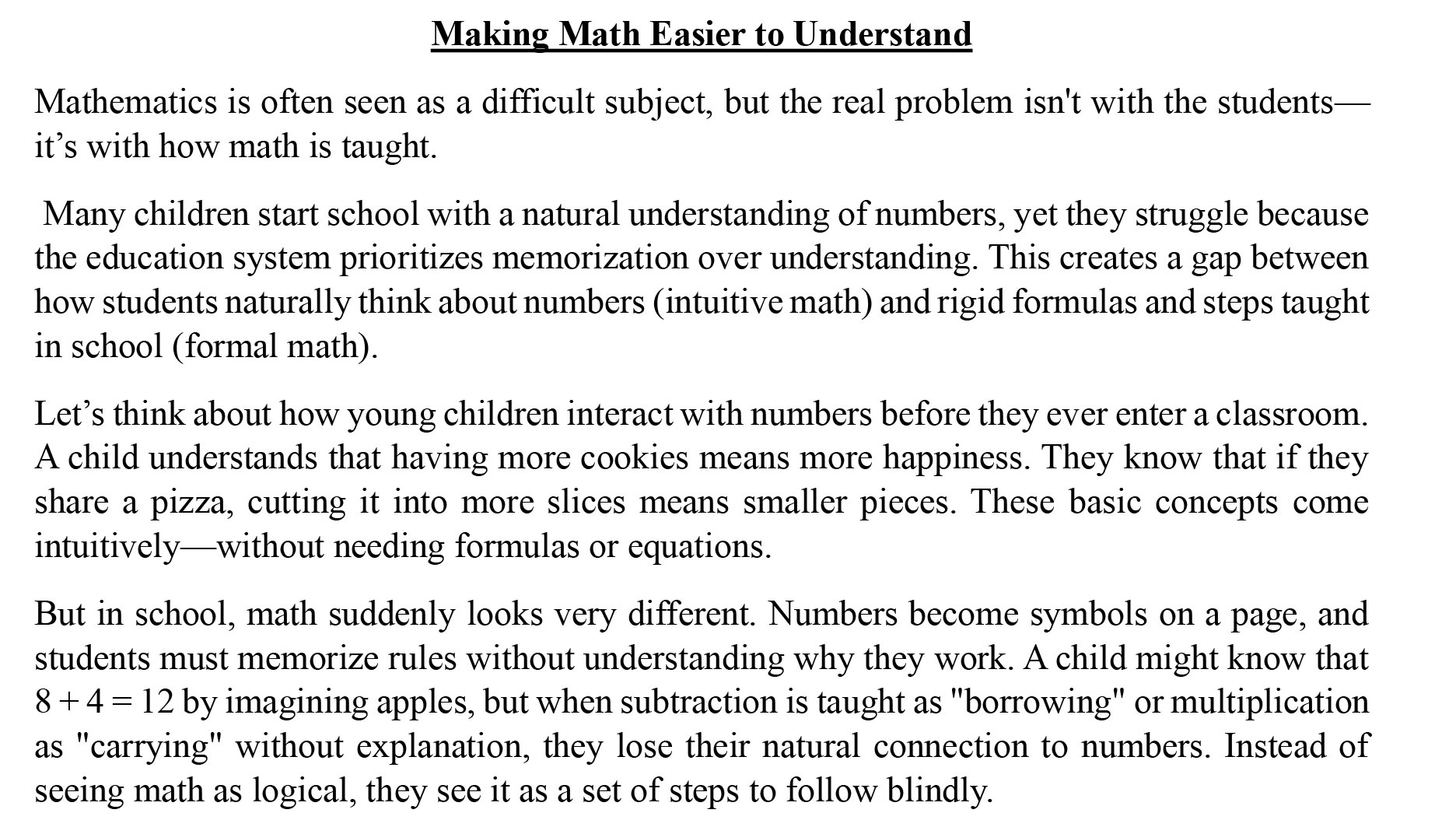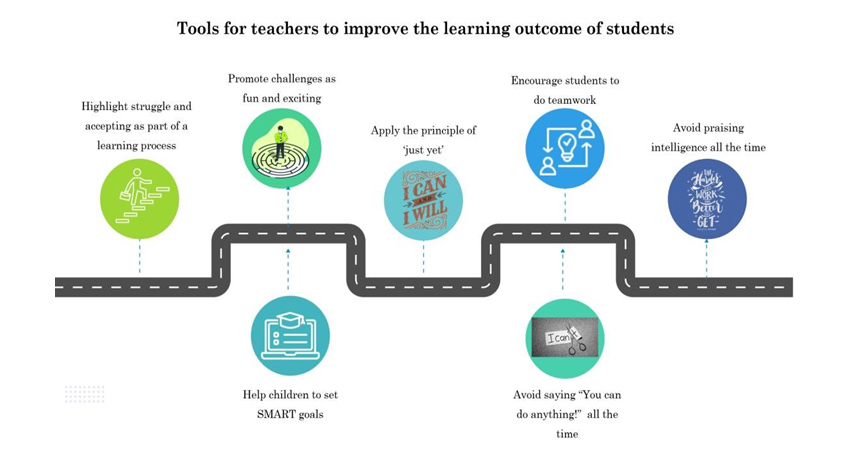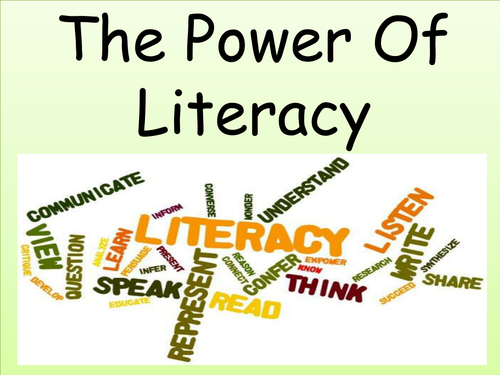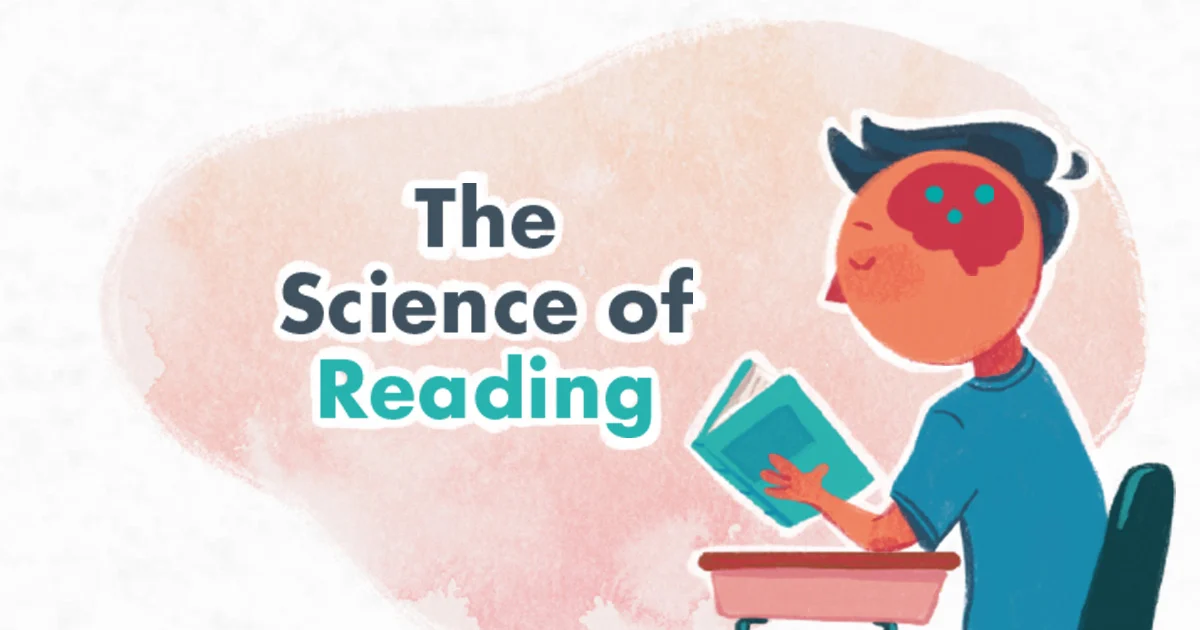Mathematics is the language of the nature. It helps us solve problems, think critically and make informed decisions. Solving math problems and improving our math skills gives our brain a good workout. And it improves our cognitive skills over time. Many studies have shown that routinely practicing math keeps our brain healthy and functioning well. Word problems teach students how to pull out important information and then manipulate it to find a solution.
Later on, complex life problems take the place of workbooks, but problem-solving still happens the same way. When students understand algorithms and problems more deeply, they can decode the facts and more easily solve the issue. Real-life solutions are found with math and logic. A strong understanding of math concepts means more than just number sense. It helps us see the pathways to a solution. Equations and word problems need to be examined before determining the best method for solving them. And in many cases, there’s more than one way to get to the right answer.
It’s no surprise that logical reasoning and analytical thinking improve alongside math skills. Logic skills are necessary at all levels of mathematical education.
Market-kids excel in practical calculations
In India, many children who work in retail markets have good math skills: They can quickly perform a range of calculations to complete transactions. They develop impressive mental math skills because of constant exposure to calculations in their work. But these students often perform much worse on the same kinds of problems as they are taught in the classroom. This happens even though many of these students still attend school or attended school through 7th or 8th grade.
Conversely, the study also finds, Indian students who are still enrolled in school and don’t have jobs do better on school-type math problems, but they often fare poorly at the kinds of problems that occur in marketplaces.
Overall, both the "market kids" and the "school students" struggle with the approach the other group is proficient in, raising questions about how to help both groups learn math more comprehensively.
This happens due to lack of understanding of concepts, pressure to perform well, a fear of making mistakes, Poor teaching methods and even anxieties passed down from parents who may have had their own math difficulties.
Why Math is the most hated subject
The real reason for people to hate math is that they consider it to be a subject to score marks in exams. So, they just try their best to cope up with it to get good marks, but the reality is that Math requires patience and hard work. In students’ lives there is a shortage of time, and they cannot put their hard work on just one subject.
At primary level, too many mathematical operations are taught in a small-time frame without analyzing the performance after one operation. For example If we are teaching addition of numbers and more than half of the class has understood it, we move on to the next topic ( say subtraction of numbers) and so on according to the syllabus plan without realizing that students who have not mastered the addition will not understand subtraction and then multiplication etc. which makes the learning gap wider and wider and eventually the student feels that he cannot understand the subject.
Strategies to make math interesting
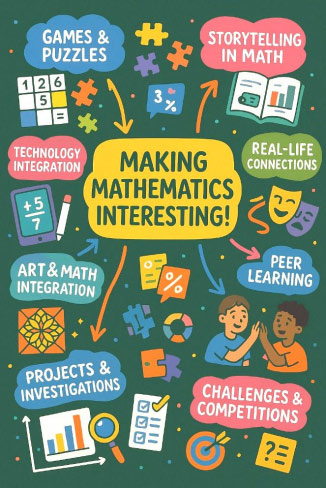
- 1. At primary level objects like blocks, playdough can be used to utilize and manipulate mathematical concepts.
- 2. Games like "Math Bingo" to practice skills in a playful way.
- 3. Use pictures, charts and stories to explain concepts.
- 4. Facilitate group work and open discussion where students can explain their reasoning and strategies to each other.
- 5. Focusing on praising students for their attempts and understanding, not just correct answers.
- 6. Practice addition and subtraction with real- word scenarios like putting up a stall to sell something in school and calculating profit or loss.
- 7. Measure objects in the classroom using rulers and tape measures, calculating perimeter and area in nature.
- 8. Teachers should start by laying down the agenda of the class and must keep an open platform wherein each and every student must be encouraged to raise questions. Teachers should understand that students will take time in understanding the concepts of mathematics. Therefore, provide them with due feedback, practice assignments, doubt clearing sessions, and revision papers.
- 9. Explain to them the purpose behind learning a particular topic.
- 10. Not every student will grasp and understand the same method of coming to a solution. Therefore, it must be an open platform wherein the students are given an option to understand the most relevant approach towards coming to a solution. In order to determine that every student has actually learned the objective of a class, it is necessary that every student communicate both orally and in writing with the proper reason.
Reasoning gives a proper idea about the understanding of the student about the concept. This will promote their engagement and learning. - 11. Before starting to teach any particular topic in mathematics, it is very important to segregate the problem sets based on that level of difficulty. Start with a few easier problems. Teachers must keep raising the bar for all the students slowly and steadily.
- 12. In Mathematics a number of interesting projects can be given which helps the students to do proper research and understand a particular topic in a much more detailed manner.
Provide them with the guidance to do a particular project but let them do the research on their own. - 13. Build a proper growth mindset among the students. This keeps them motivated and boosted. Provide them with certificates, stickers, badges, or trophies as they progress. Teachers can have weekly announcements of the best students of the week. Such recognition will help them repeat the good work.
- 14. At last, we should be patient. We all know how difficult mathematics can be. We all have been there. Therefore, it becomes very important to be patient with the child and to teach them in a step-by-step sequential manner. This will prevent them from getting afraid of mathematics.

I, Priyanka Vasudeva, have been teaching mathematics at Modern School Vasant Vihar for over two decades. I have done my graduation and post-graduation in mathematics from Delhi University. Over the years, I have taught students across various age groups and academic backgrounds, helping them not just understand concepts but fall in love with problem-solving
Mrs. Priyanka Vasudeva
Modern School Vasant Vihar
New Delhi 110057




